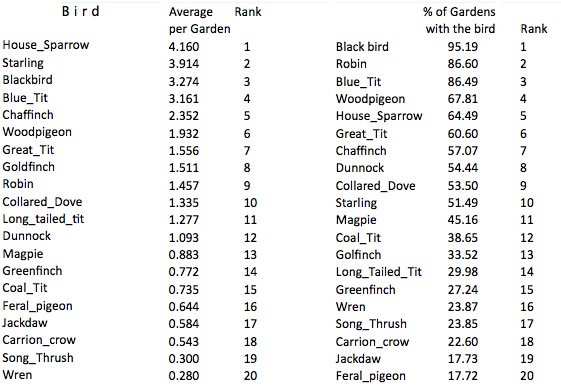Copyright © University of Cambridge. All rights reserved.
'Birdwatch' printed from https://nrich.maths.org/
Show menu
Why do this problem?
This activity gives pupils an opportunity to engage in fruitful discussion about data presented to them. It gives a forum for a whole group or class discussion, and provides a situation where pupils need to listen carefully to what others are saying, and follow the thinking behind what has been said.
Possible approach
The activity is one which probably works best as a dicussion among a group or class. There will be a need to refer to the data throughout so some form of display could be necessary and it might be helpful to print off copies of the data on this sheet.
It may be that through the discussion, some questions arise, perhaps about the data itself or about the reasons behind the results presented in the data. These questions may lead to groups of children collecting further data or conducting research in an attempt to obtain answers.
This activity is also useful to help pupils learn about what is important when having a discussion where others have ideas that may then be validated and accepted or rejected. This, of course requires the development of good listening skills.
Key questions
Why do you say that?
What do others think about that?
Possible extension
Explore other websites that produce child-friendly data and encourage learners to decide what to interrogate and what data collection to pursue.
Possible support
Try to step back as the children discuss the data. Depending on their experience, you may need to act as a 'chairperson' and encourage all to contribute.
